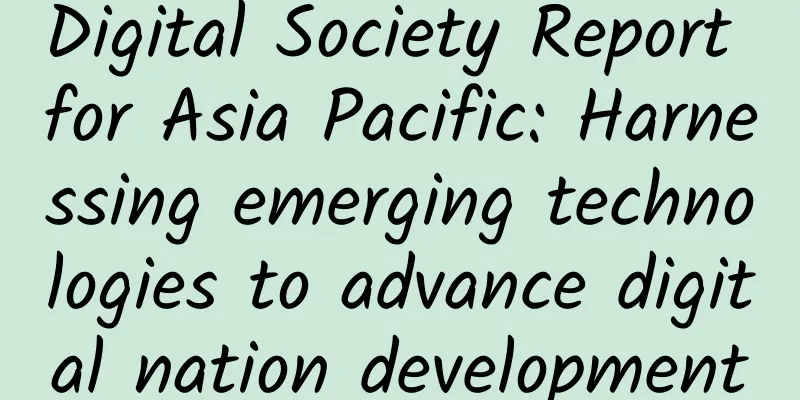Digital Society Report for Asia Pacific: Harnessing emerging technologies to advance digital nation development

|
GSMA M360 Asia Pacific returns this year, hosted for the first time in Seoul, South Korea by KT, bringing together industry leaders from across the region to discuss the future of mobile technology and the impact of digital technologies and services on the economies of Asia Pacific countries. GSMA released its latest report "Digital Societies in Asia Pacific - Leveraging Emerging Technologies to Advance Digital Nations". The report assesses the role of emerging technologies in the Asia Pacific countries' aspirations to become digital nations. 96% of the population in Asia Pacific is now covered by mobile broadband networks, and operators will invest nearly $260 billion in their networks by 2030. Most of this investment will be used for 5G technology. Cultivating a digital nation in Asia Pacific Countries in the Asia-Pacific region will strive to become "digital nations" by 2030. These efforts will integrate digital technologies and services into all sectors of the economy, build resilient economies with limited resources, and achieve sustainable and inclusive economic growth. Key findings include: As countries in the Asia-Pacific region strive to become digital nations, emerging technologies are moving toward the mainstream. In the 2022 edition of the Government AI Readiness Index, four countries in the Asia-Pacific region ranked in the top ten: Singapore (second), South Korea (sixth), Australia (eighth) and Japan (ninth). High-speed connectivity is the cornerstone of a digital nation, and mobile broadband networks, the primary channel for most people to access the internet, now cover 96% of the population in Asia Pacific. Between 2023 and 2030, mobile operators in Asia Pacific will spend $259 billion on their networks. As digital technologies and services play an increasingly important role in the economies of Asia-Pacific countries, a whole-of-government approach and international cooperation are needed. |
<<: Microsoft and Adobe work together to optimize the touch screen experience of PS
Recommend
Tencent invested in Toutiao? Here are three questions
Reliable we-media outlet Kaiba broke the news tha...
People who often eat midnight snacks must be careful about this problem~
Audit expert: Wu Xi Associate Chief Physician, De...
Is it impossible to defeat "overwork obesity"? Not necessarily, learn these seven tricks or you may be able to "beat" it →
Many people have discovered that obesity is a wor...
How long can Zhong Xuegao’s “brainwash marketing” last?
In the Internet era, the explosion of the interne...
Would you still dare to use your iPhone if it has been successfully cracked?
Last week, the most sensational event in the tech...
How much does it cost to rent a server in Shangqiu Unicom per month?
How much does it cost to rent a server in Shangqi...
Music Radar: A new opportunity for NetQin's strategic transformation to a platform
Many mobile Internet music lovers may have encoun...
Prediction of the impact of the epidemic on housing prices in 2020. Will housing prices fall after the 2020 epidemic?
Now is the epidemic period, but there is still a ...
How to seize the benefits of WeChat mini programs?
Any project that wants to make money must grasp t...
How serious is Android fragmentation? One developer tackles 4,000 devices
Android, an open source operating system develope...
What is the cosmic microwave background radiation? Was it created after the Big Bang?
What is the cosmic microwave background radiation...
Which company is the best at Dunhuang mini program? Which company is the best at Dunhuang WeChat mini program?
As mini programs become increasingly popular, man...
2018 Global & Chinese Search Engine Market Share Rankings!
After doing promotion for so long, do you know wh...
Dark matter accounts for 85% of the universe, so why can't we find it?
The author or source of this article or its origi...
0 sugar 0 calorie beverage, drink as much as you want without getting fat?
How many calories are in a 500ml bottle of Fat Ho...









